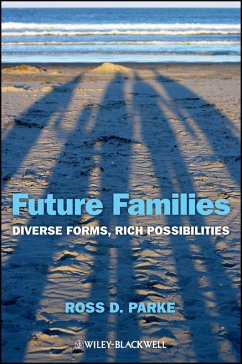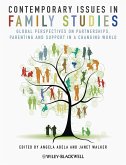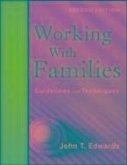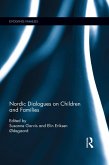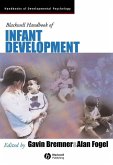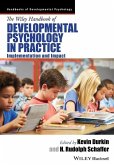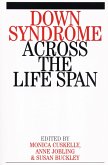Dieser Download kann aus rechtlichen Gründen nur mit Rechnungsadresse in A, B, BG, CY, CZ, D, DK, EW, E, FIN, F, GR, HR, H, IRL, I, LT, L, LR, M, NL, PL, P, R, S, SLO, SK ausgeliefert werden.
"The book is best thought of as a stimulus to new conversations about our conception of families and anexploration of the implications of changing family forms forchildren's development." (Society for Researchin Child Development, 1 January 2014)
Ross Parke's wonderful book arrives in a time when politicalculture wars have intensified (again), with widely clashing viewsabout what ideal families should be like. Parke provides adetailed and engaging account of the diversity of contemporaryfamilies, laying waste along the way to many widely-held mythsabout what is healthy for parents and children that have dominatedcurrent discussions without paying attention to the evidence. Thisbook will serve as the new go-to reference source for familyscholars and their students in the social sciences and humanities.It will also be required reading for (open-minded) politicaldecision-makers and family-service providers who are concerned withhow we allocate resources for families, especially in these timesof economic distress.
--Professors Carolyn and Philip Cowan,Professors Emeriti, University of California, Berkeley
Future Families: Diverse Form, Rich Possibilities is thebest introduction to the topic of family diversity that I have seento date. A succinct but remarkably comprehensive treatment of thetopic of family diversity.
--Professor Frank Furstenberg, Department ofSociology, University of Pennsylvania
This is the most important book on the family to have beenwritten in the 21st Century. It is unsurpassed in terms of itssensitive and erudite consideration of the key questions raised bycontemporary family forms and the extent to which these questionscan be answered by empirical research. It is brings the topic aliveby including real-world examples and discussion of the social andpsychological implications of Future Families - a "must-read"for everyone with an interest in family life today.
--Professor Susan Golombok, Centre for FamilyResearch, University of Cambridge
Even Tolstoy, who thought "all happy families resemble oneanother," could not have imagined the diversity of formsthose happy families take, but Ross Parke has. In thisinnovative book he provides context, understanding, and thescientific basis for appreciating differences in numbers ofparents, gender of parents, and sources of children. Hisscholarship will inform professionals, parents, policy-makers,students, and faculty about the continuing changes in modern familystructure and life.
--Arnold Sameroff, Ph. D. , Professor Emeritusof Psychology, University of Michigan

